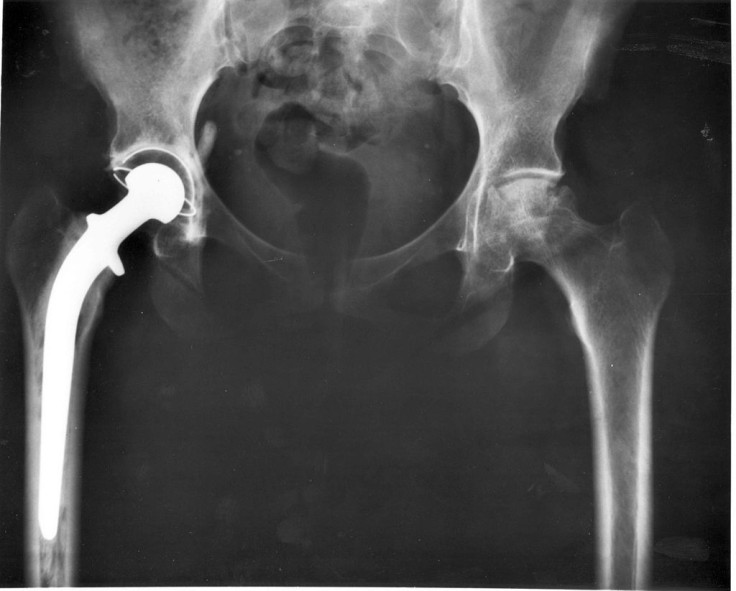Hip Replacements For Arthritis Patients Could Be A Thing Of The Past, Thanks To Lab-Grown Cartilage

Arthritis is often treated as an inevitable and incurable part of getting older, but new developments in lab-grown cartilage may soon change this. Although yet to be tested in humans, a team from Cytex Therapeutics, a North Carolina-based company that develops bio-artificial devices, believes these advancements may one day eliminate the need for hip replacement surgery in younger arthritis patients.
According to a study released on the innovative new medical device, published in the online journal Proceedings of the National Academy of Sciences, the cartilage was created using “3D textile technology,” and is made of a patient’s stem cells that have been coaxed to grow into cartilage on a plastic scaffold shaped like the ball of a hip joint.
Over time, the plastic scaffolding is meant to dissolve away, leaving only the cartilage. These cartilage cells are also programmed to help reduce inflammation, Perf Science reported. The team hopes that when implanted into a patient’s hip joint, the device will replace the damaged tissue while simultaneously fighting off any inflammation that could potentially destroy the new tissue and “resurface” the joint.
The implant is designed to be used by patients who have been diagnosed with arthritis at an early age, typically younger than 65. Hopefully, it would prevent their joint damage from progressing to the point where they may need a hip replacement. Jerry Hu, director of the Clinical Translational Program at the University of California, Davis’ department of biomedical engineering, who was not involved with the research, told UPI that the artificial cartilage may be useful for other parts of the body as well, such as the the knee, fingers, and shoulders, though there are still some hurdles to jump before the technology gets to this point.
“It may be some time before the technology gets translated to the clinic, due both to the need of demonstrating safety and effectiveness in animals as well as the same for humans, “ Hu told UPI. “Unfortunately, this does not mean that people can ask their doctors for this form of treatment any time soon."
Arthritis is an inflammation of the joints that usually develops over time, although it can suddenly appear. According to Healthline, the condition is caused by the normal wear and tear of cartilage, the connective tissue found in between joints. Although most cases of arthritis are caused by the normal aging process, in some cases an infection or injury to the joints can speed up cartilage’s natural breakdown. In addition, there are also genetic risk factors to developing this condition. Arthritis can also occur when the body’s own immune system accidentally attacks the soft tissue in your joints. Common symptoms of the condition include joint pain, stiffness, and swelling, and most patients notice their symptoms to be at their worst in the early morning.
Our ability to grow body parts in a lab setting using stem cells has truly exploded recently and is beginning to change the way we address medicine. For example, in 2014, researchers from Cincinnati Children’s Hospital Medical Center created a lab-grown stomach. However, unlike the cartilage implant, which was created to be implanted into patients, the stomach will be a teaching tool, and will help doctors better understand how this important organ works and what is needed to form a healthy stomach.
Source: Moutos FT, Glass KA, Compton SA, Ross AK, Gersbach CA, Guilak F, Estes BT. Anatomically Shaped Tissue-Engineered Cartilage with Tunable and Inducible Anticytokine Delivery For Biological Joint Resurfacing. PNAS. 2016.
Published by Medicaldaily.com



























